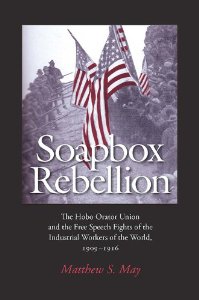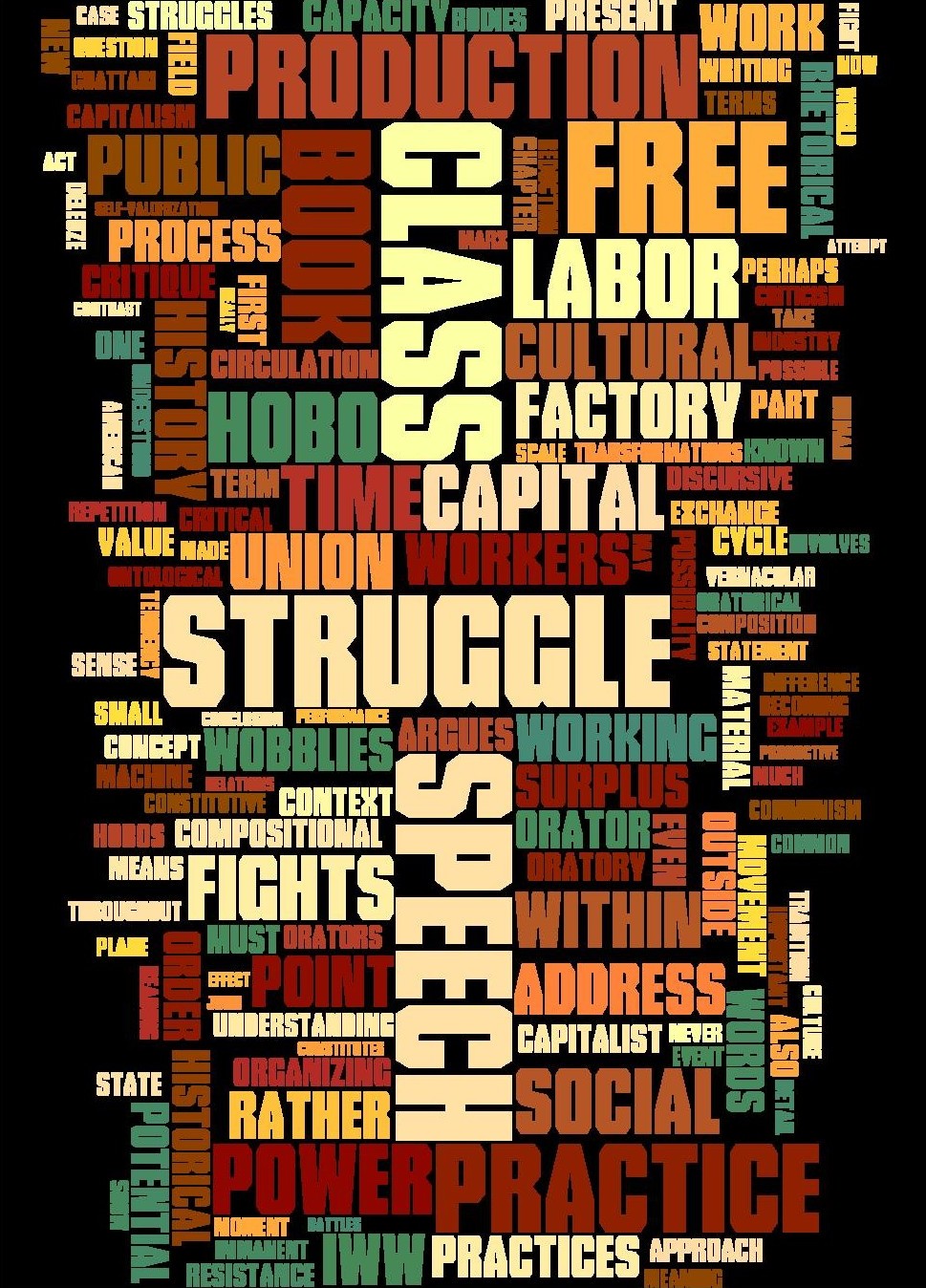Soapbox Rebellion
Praise for Soapbox Rebellion
“This book is extremely readable and even inspiring. Although there is a large recent literature in English and other European languages on autonomist Marxism, I am unaware of any work that does this sort of careful synthesis of historical scholarship with contemporary theoretical concerns. This is a very fine work indeed.” –James Arnt Aune, author of Selling the Free Market: The Rhetoric of Economic Correctness
“One of the central contributions of Soapbox Rebellion is its historical revision of the early twentieth-century Industrial Workers of the World (IWW) free speech fights…May challenges the commonly held view…that the 1909-1916 free speech fights were mere political staging—a distraction from a burgeoning working class movement against a capitalist system. May demonstrates instead that the IWW’s commitment to the free speech fights organized thousands of migrant workers into a dispersed yet powerfully mobile hobo orator union, using soapbox oratory and street protests as modes of collective enunciation that did indeed disrupt capitalist cycles of production. Moreover, May persuasively insists that this novel form of organizing and working class protest has revolutionary communicative potential both historically and today. This is an ambitious book: not only is May’s purpose to reframe labor history’s interpretation of the free speech fights, it is also to challenge…dominant forms of rhetorical criticism within the tradition of public address.” –Suzanne Spring, Rhetorica
“May’s Soapbox Rebellion is an elucidating, accessible, and succinct, study of a specific period and practice of the IWW’s oratorical history. Some of the more memorable takeaways include a convincing notion of rhetoric-as-production; an enriching juxtaposition of diverse theories and traditions; an original contribution to rhetorical scholarship; and a practical framework for understanding (and hopefully improving) the organizing practices of contemporary activists and social movements. –Jason Del Gandio, First Amendment Studies
“Every five years or so I come across a work on IWW history that messes with everything I believe about our union—a writing that makes me reconsider all my assumptions, shut my yap and think. “Soapbox Rebellion” by Matthew May is one of those works….More than the recent IWW academic works, even the ground breaking ones such as “Philly Docks” and “Harvest Wobblies,” down deep this is an activist and a Wobbly book. It advocates a specific perspective on
organizing convincingly” —Industrial Worker.
Overview
Soapbox Rebellion offers a critical history of the free speech fights of the Industrial Workers of the World (IWW) and illustrates how the lively and colorful soapbox culture of the “Wobblies” generated novel forms of class struggle.
 From 1909 to 1916, thousands of IWW members engaged in dozens of fights for freedom of speech throughout the American West. The volatile spread and circulation of hobo agitation during these fights amounted to nothing less than a soapbox rebellion in which public speech became the principal site of the struggle of the few to exploit the many. While the fights were not always successful, they did produce a novel form of fluid union organization that offers historians, labor activists, and social movement scholars a window into an alternative approach to what it means to belong to a union.
From 1909 to 1916, thousands of IWW members engaged in dozens of fights for freedom of speech throughout the American West. The volatile spread and circulation of hobo agitation during these fights amounted to nothing less than a soapbox rebellion in which public speech became the principal site of the struggle of the few to exploit the many. While the fights were not always successful, they did produce a novel form of fluid union organization that offers historians, labor activists, and social movement scholars a window into an alternative approach to what it means to belong to a union.
Soapbox Rebellion highlights the methodological obstacles to recovering a workers’ history of public address; closely analyzes the impact of hobo oratorical performances; and discusses the implications of the Wobblies’ free speech fights for understanding grassroots resistance and class struggle today—in an era of the decline of the institutional business union model and workplace contractualism.
Buy the Book:
Soapbox Rebellion: The Hobo Orator Union and the Free Speech Fights of the Industrial Workers of the World, 1909-1916

